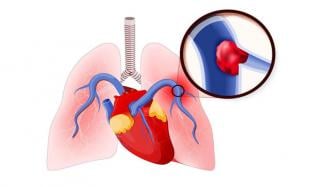
A ketogenic diet plan is one that focuses on the ultra-low consumption of carbohydrates, about 5% and focuses heavily on fat and protein at about 60% and 35% respectively.
The diet has shown promise in promoting fat loss and improving cognitive decline, among its other advantages and health benefits.
Advantages of Ketogenic Diet:
While people are in a ketogenic state, the blood sugar level content in the body reduces and this forces the body to create a byproduct known as “ketones”. The ketogenic diet may then aid in the following ways;
• It encourages protection towards the cells
• It reduces inflammation within the body
• It reduces the physical component of stress within the body
Other benefits include;
Ketogenic Diet Benefits on a Cellular & Bodily Level:
In general, the body and its mechanics obtain a number of benefits, benefits that go beyond helping with caloric restriction, and they are;
i. Cellular:
• Ketones burn more efficiently than sugar within the blood.
• It helps increase and enhances mitochondrial function and production within the body.
• Using ketones for fuel creates a lot less reactive oxygen species than carbohydrates.
• The reduction in carbohydrate consumptions triggers a process called autophagy and other anti-inflammatory processes.
ii. Bodily:
• It causes a decrease in insulin levels because dietary carbohydrates do not stimulate its release
• It reduces inflammatory fat levels within the body
• It stimulates the formation of less reactive oxygen species within the body
A combination of the effects, both bodily and cellular provide the body with a host of benefits, however a ketogenic diet has also been seen to aid people in fighting off and managing a number of health conditions. Some of which include;
• Heart disease.
• Migraines.
• High blood pressure
• High cholesterol
• Type 2 diabetes.
• Epilepsy.
• Obesity
• Non – alcoholic fatty liver disease.
• High blood sugar. etc.
For those who are otherwise healthy. A ketogenic diet can help improve the following;
• Body composition.
• Energy levels.
• Brain function and cognition.
• Lowered pain and inflammation within the body.
A more detailed account of the benefits are below;
Ketogenic Diet for Weight Loss:
On a ketogenic diet, insulin levels drop greatly; this makes the body turn to fat burning mode.
Ketogenic Diet & Mental Clarity:
There are many people who opt for a ketogenic, low carb based diet solely for its benefits in increasing mental focus. Because with the reduction in carbohydrates, the body no longer gets dips or spikes in energy levels. This results in an increase in focus and better concentration.
• For Diabetes:
A keto-based, low carb diet helps patients manage their blood sugar levels, as well as aids in issues regarding insulin resistance.
• For Cancer Prevention:
According to the Columbia University Herbert Irving Comprehensive Cancer Center, there is evidence to suggest that a ketogenic diet provides a hostile environment for cancer cells.
This occurs when the body is flooded with a fat rich, low carbohydrate diet because the cancer cells no longer have access to the body’s glucose cells. This starves the cancer cells while the body’s own cells adapt to the new condition.
It’s also been observed that by reducing overall blood glucose levels, the body’s levels of insulin drops and this helps stop the proliferation rate.
• For Brain Health:
One of the biggest energy sources, glucose, is highly important for the body to maintain important bodily functions. However, that is not the only energy source, which the body can use. Ketones are components that form during starvation mode for the body. This occurs when there is a lack of carbohydrates in the body.
It has shown effects in;
• For Epilepsy:
In a lot of cases, a keto based, low carb diet has been used to treat children with epilepsy and in a study by Nature, a monthly peer-reviewed medical journal the Ketogenic diet therapy show improvement in reducing seizures by 50%, and 90% in one third of the 143 ASU Children’s Hospital patients.
• For Multiple Sclerosis:
A ketogenic diet has shown potential benefits in treating the neurodegenerative component of Multiple Sclerosis (MS).
According to the National Institutes of Health, a study of 47 MS patients, compared to 16 healthy individuals, saw that those on a Ketogenic diet saw an inverse correlation between their degree of fatigue, and the glucose metabolic rate, which in excess causes glucose hypo metabolism which is considered the ‘initial step’ towards causing axonal atrophy and neuronal loss.
Ketogenic Diet & Cholesterol Levels:
A ketogenic diet increases the level of HDL cholesterol, also known as ‘good’ cholesterol. For those unversed, higher levels of HDL cholesterol lower the risk of a number of diseases. Not only that but it lowers the presence of LDL cholesterol in the bloodstream, also known as ‘bad’ cholesterol.
According to PubMed, a study conducted on the beneficial effects of the ketogenic diet saw that long-term commitment showed "significantly reduced the body weight and body mass index of the patients." It also showed a decreased level of triglycerides, LDL, and blood glucose, as well as an increased the level of HDL cholesterol.
• For Acne:
An updated version of the 2004 study there is evidence that by following a low carb ketogenic diet; acne has shown to reduce.
Per a 2024 review title 'The effect of the ketogenic diet on Acne: Could it be a therapeutic tool?' its been seen that "very low-calorie ketogenic diet (VLCKD) has been associated with both significant reductions in body weight and inflammatory status through the production of ketone bodies and thus it has been expected to reduce the exacerbation of clinical manifestations or even block the trigger of acne disease."
Tips to Maximize Ketogenic Benefits:
According to Healthline it’s recommended to;
• Consume fatty fish.
• Eat low carb vegetables with each meal.
• Limit the consumption of dairy or avoid it completely.
• Increase consumption of green tea.
• Limit or completely avoid the consumption of dark chocolate. etc.















